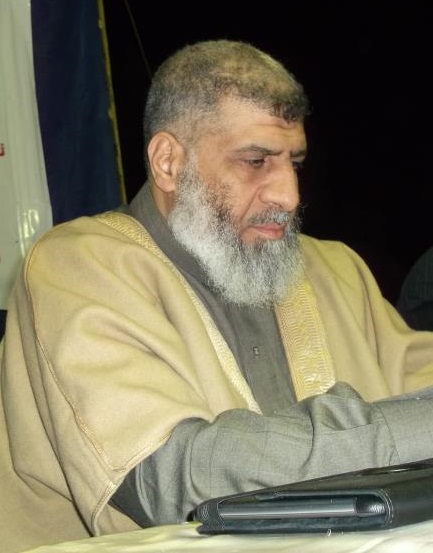
(AFP PHOTO / HASSAN MOHAMED)
Arab foreign ministers called on the US, and the remaining permanent members of the UN Security Council, the EU and the UN “to commit the Israeli government to stop settlement activity.”
The foreign ministers met on Saturday in an emergency meeting of the Arab League Council to discuss developments in the US sponsored Palestinian-Israeli negotiations. The meeting was held at the request of the Chairman of the Palestinian Liberation Organisation, Mahmoud Abbas, who arrived in Cairo on Friday to attend the meeting.
Arab League Secretary General Nabil El-Araby said in his opening speech that Israel’s “continuation of its obstinate practices and policies and its repetitive and variant requests does not create the atmosphere that is needed for the success of the negotiations.”
The Palestinians and Israelis had agreed to come to the negotiation table in July following US diplomatic efforts. The negotiations have a time frame of nine months.
Chief Palestinian Negotiator Saeb Erekat cited Abbas as saying during the meeting that he rejects “interim” and “transitional” solutions and that he wants a comprehensive final status solution reached by 29 April, the Palestinian news agency reported. US State Department spokeswoman Jen Psaki said on Friday in a press briefing that the US also “remain(s) focused on a final status agreement.”
After Abbas told the ministers details about the negotiations, the foreign ministers agreed on a set of decisions including holding the Israeli government responsible for “obstructing the peace process by continuing to kill Palestinians in cold blood and for its persistence on settlement schemes and demolition of houses and villages, the continuous violations on Al-Aqsa Mosque and the intensification of the siege on the Gaza Strip.”
The ministers asserted the Arab position which calls for “completely lifting the siege on the Gaza Strip.” They also stressed the necessity of immediate reconciliation between rival Palestinian factions.
The ministers asserted Palestine’s right to an independent state on all lands that were occupied in 1967, with Eastern Jerusalem as its capital.
The negotiations revolve around four issues, Jerusalem, borders, security and refugees. Egypt has long maintained that despite scepticism, it still supports the talks.
Palestinian Foreign Minister Riyad al-Maliki said the ministers asserted their support for the Palestinian leadership, adding that it is necessary to continue to hold meetings for consultation between the Palestinian leadership and Arab foreign ministers.
Abbas and El-Araby had met on Friday. Abbas also met with Egypt’s Interim President Adly Mansour on Saturday morning, ahead of the meeting, their third meeting since 3 July.
Abbas, who is also known as Abu Mazen, told Mansour that he is keen on coordinating and consulting with Egypt because of Egypt’s position in supporting the Palestinian cause. They discussed regional developments and the reconciliation process.
The emergency Arab League meeting was headed by Libyan Foreign Minister Mohamed Abdel Aziz who met with Egyptian Foreign Minister Nabil Fahmy on the sidelines of the meeting and both agreed on the importance of the Palestinian position in the negotiations.
Abdel Aziz was tasked at the end of the meeting to write a letter to US Secretary of State John Kerry informing him of the Arabic position on the Palestinian cause.
Egypt’s foreign ministry has reiterated, on several occasions, Egypt’s position on Palestinian-Israeli talks: “That the Palestinian-Israeli negotiations are serious, that they follow the agreed timetable and that they lead to the establishment of an independent, sovereign, and viable Palestinian state based on the June 1967 borders with East Jerusalem as its capital.”



